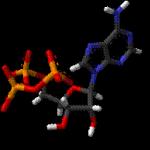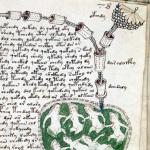The Past Perfect Tense
Prepared by Nedelina L.

A past perfect verb expresses an action that was completed before a specific moment or other action in the past.
They had finished the work by 6 o"clock yesterday. - They finished work yesterday at 6 o'clock.
Mary had fallen asleep before her mother came home.- Mary fell asleep before her mother came home.

Past Perfect is formed using an auxiliary verb had and III forms of the main verb.

Note!
Past Perfect is used to express precedence. If actions that followed each other are described, the Past Simple is used.
Compare: She did some shopping, came home and cooked dinner.- She did her shopping, came home and cooked dinner.
Before she cooked dinner, she had done some shopping.- Before she cooked dinner, she did some shopping.

Past Perfect

(+) He had read the book, before he saw the film.
(?) Had he read the book before he saw the film?
(-) He hadn’t read the book, before he saw the film.

Time indicators
by 6 o’clock yesterday – yesterday by 6 o’clock
by 9 a.m. yesterday – yesterday at 9 am
before he came - before he came
by that time - by that time
after - after
by the end of the year - by the end of the year, etc.

General Question
Had he read the book before he saw the film? –
Alternative Question
Had he read the book or not before he saw the film?
Special Question
What had he done before he saw the film?
Disjunctive Question
He had read the book before he saw the film, hadn’t he?
Subject Question
Who had read the book before he saw the film? –

Sam had painted the picture
by 7 o'clock yesterday.

Roman had cooked dinner
by 6 o'clock yesterday.

The plane had taken off before Mrs Evans arrived to the airport.

Sally had fallen asleep before her father came home.

The students had made cakes by 9 p.m.
To use presentation previews, create a Google account and log in to it: https://accounts.google.com
Slide captions:
Past completed tense had + V 3 had worked had played had written
Used to express a past action that has already taken place before a certain point in the past. This moment can be determined: by such time notations as by 5 o`clock (to 5 o'clock); by Saturday (by Saturday); by the end of the year (by the end of the year); by that time (by that time) ; by the 15 th of December (by December 15) By the end of the year he had learned to speak English. We had done our homework by 4 o`clock. another (later) past action expressed in the Past Simple: We watched the film which our friends had told us about. Tom ate an ice-cream he had bought in the shop.
And also the Past Perfect is used: in a subordinate clause after the conjunction after (after): After the sun had set, we decided to return home. in a complex sentence with the conjunction before (before; before): I had finished my work before my mother came. in the main clause in the presence of adverbs hardly, scarcely (barely): He had hardly entered the house, when it started to rain.
Before I went to Russia last year I (to read) a lot about it. I found that your country (to change) so much. I (to hear) that Moscow became as an international city as London. I (to expect) that Russia is a cold country and I (to find) it was true. She (to be born) before the war (to begin). Captain Cook (to discover) the island before he (to die) .
On the topic: methodological developments, presentations and notes
This presentation presents the grammatical material necessary to distinguish between the verb-tense forms Past Simple and Present Perfect. Students are then asked to complete an exercise to...
Past Perfect Tense
Past completed tense
RCDO CI, Makhachkala

Education
had + V 3

Using the Past Perfect
Denotes an action that has already taken place at some point in the past.
I called Jim too late, he had already left.
I called Jim too late, he had already left.

The Past Perfect is a "pre-past" tense because it expresses a past action in relation to a moment that is also past. This point can be determined:
- such time notations as
by five o'clock by five o'clock
by Saturday by Saturday
by the end of the year by the end of the year
by that time by that time and so on.:
We had translated the article by five o’clock.
We (already) translated the article by five o'clock.
- another (later) past action expressed in Past Simple:
Lucy had cooked the dinner when Bob came home.
Lucy had (already) prepared dinner when Bob came home.

Time indicators

Affirmative sentence
By the end of the year he had learned to speak French.
By the end of the year he had (already) learned to speak French.
We examined the goods which they had sent us.
We examined the goods they sent us.

Interrogative sentence
Had he written a letter when I came in?
Did he (already) write a letter when I came in?
Had they come back by two o"clock yesterday?
Yesterday they (already) returned to two o'clock?

Negative sentence
I had not read the book by Saturday.
I had not yet read this book by Saturday.
When we called for Julia, she hadn't yet got up.
When we went to pick up Julia, she had not yet gotten up (she was in bed).


Exercise 1
Insert the verbs in the Past Perfect tense. Put the verbs into the Past Perfect.
- I ... (to have) breakfast before I went to school.
- I... (not do) my homework.
- By 8 o’clock the rain... (to stop).
- She went to the post-office after she ... (to write) the letter.
- I apologized I … (not/phone) her.
- He... (to work) at the factory before he entered the college.
- He got a bad mark for his test because he ... (to make) a lot of mistakes in it.
- Mr. Jackson said that he … (already/buy) everything for lunch.
- John... (not play) the violin since he was school.
- They ... (to marry) before they bought this house.

Exercise 2
Say what action was done before. Combine the two sentences into one. Determine which action happened first. Combine two sentences into one without changing parts. Use BEFORE.
Example: I sent a telegram. Then I met my friend. - I had sent a telegram before I met my friend.
- The rain stopped. I went for a walk.
- I did my homework. My mother returned home.
- We met in the street. We went to the park.
- They packed their things. Then they started.
- I had dinner. I switched on the TV set.
- He returned home. The guests left.
- We came to the cinema. The film began.
- I read the book. I saw the play.
- They lived here. They moved to another place.
- We played a game of tennis. We went to my place.

Exercise 3
Put the verbs from brackets into the Past Simple and Past Perfect forms, paying attention to the sequence of actions
Example: When my mum… (appear), my father already… (start) the car. – When my mum appeared, my father had already started the car.
(When mom appeared, my dad had already started the car.)
- When the police… (arrive), we already … (catch) the thief.
- Jack... (finish) the test before the bell... (ring).
- When Anna... (come) to say good-night, her children already... (fall asleep).
- Scott already … (prepare) the dinner when her husband … (get) home from work.
- When Brad and Susan … (get married), they … (know) each other for 3 years.
- She... (not enjoy) the film because she... (read) the book before.
- Our apartment... (be) in a mess because I... (have) a birthday party the night before.
- We … (not go) to a restaurant because we … (spend) all our money on clothes.
- Mary… (can’t go) skating after she… (break) her leg.
- Larry … (be late) because he … (get stuck) in a traffic jam.

Slide 1
Slide 2
 FORM Examples: You had studied English before you moved to New York. Had you studied English before you moved to New York? You had not studied English before you moved to New York. I had(not) (hadn’t) Past Participle You He / She / It We / You / They Had you P. Parti?
FORM Examples: You had studied English before you moved to New York. Had you studied English before you moved to New York? You had not studied English before you moved to New York. I had(not) (hadn’t) Past Participle You He / She / It We / You / They Had you P. Parti?
Slide 3
 Past Perfect by 6 o’clock yesterday - yesterday by 6 o’clock by 9 a.m. yesterday - yesterday at 9 am before he came - before he came by that time - by that time after - after by the end of the year - by the end of the year, etc.
Past Perfect by 6 o’clock yesterday - yesterday by 6 o’clock by 9 a.m. yesterday - yesterday at 9 am before he came - before he came by that time - by that time after - after by the end of the year - by the end of the year, etc.
Slide 4
 A past perfect verb expresses an action that was completed before a specific moment or other action in the past. They had finished the work by 6 o"clock yesterday. - They finished work yesterday by 6 o'clock. Mary had got asleep before her mother came home. - Mary fell asleep before her mother came home. The past perfect is formed using the auxiliary verb had and III forms of the main verb. S had V3
A past perfect verb expresses an action that was completed before a specific moment or other action in the past. They had finished the work by 6 o"clock yesterday. - They finished work yesterday by 6 o'clock. Mary had got asleep before her mother came home. - Mary fell asleep before her mother came home. The past perfect is formed using the auxiliary verb had and III forms of the main verb. S had V3
Slide 5
 Note! Past Perfect is used to express precedence. If actions that followed each other are described, the Past Simple is used. Compare: She did some shopping, came home and cooked dinner. - She did her shopping, came home and cooked dinner. Before she cooked dinner, she had done some shopping. - Before she cooked dinner, she did some shopping.
Note! Past Perfect is used to express precedence. If actions that followed each other are described, the Past Simple is used. Compare: She did some shopping, came home and cooked dinner. - She did her shopping, came home and cooked dinner. Before she cooked dinner, she had done some shopping. - Before she cooked dinner, she did some shopping.
Slide 6
 Past Perfect (+) He had read the book, before he saw the film. (?) Had he read the book before he saw the film? (-) He hadn’t read the book, before he saw the film. + ? - Shad+V3. HadS+V3? Shadnot+V3.
Past Perfect (+) He had read the book, before he saw the film. (?) Had he read the book before he saw the film? (-) He hadn’t read the book, before he saw the film. + ? - Shad+V3. HadS+V3? Shadnot+V3.
Slide 7

Slide 8

Slide 9
 Take off Arrive Mrs. Evans The plane had taken off before Mrs. Evans arrived at the airport.
Take off Arrive Mrs. Evans The plane had taken off before Mrs. Evans arrived at the airport.
Slide 10

Slide 11

Slide 12
 PRACTICE: Put the verbs in brackets in the correct tense. 1. When the accident……. (happen) that lorry was driving like a lunatic. I…… (never see) a lorry traveling so fast! 2. We …… (miss) the beginning of the play because it ….. (already start) when we arrived. 3. I …… (not recognise) my old teacher because we.....(not see) each other for 15 years. 4. When I ……(arrive) at her house I found she ……. (go out) so nobody was there. 5. My brother……. (eat) all the cake before we …….. (get) home. 6. I……. (understand) the film because I……. (read) the book before. 7. Before she …… (buy) the flat she …… (look around) it several times. 8. I…… (not have) my book because I……. (lose) it the day before. 9. I……. (study) English for two years before I…… (move) to N.Y. 10. She……. (never see) a bear before she...... (move) to Alaska.
PRACTICE: Put the verbs in brackets in the correct tense. 1. When the accident……. (happen) that lorry was driving like a lunatic. I…… (never see) a lorry traveling so fast! 2. We …… (miss) the beginning of the play because it ….. (already start) when we arrived. 3. I …… (not recognise) my old teacher because we.....(not see) each other for 15 years. 4. When I ……(arrive) at her house I found she ……. (go out) so nobody was there. 5. My brother……. (eat) all the cake before we …….. (get) home. 6. I……. (understand) the film because I……. (read) the book before. 7. Before she …… (buy) the flat she …… (look around) it several times. 8. I…… (not have) my book because I……. (lose) it the day before. 9. I……. (study) English for two years before I…… (move) to N.Y. 10. She……. (never see) a bear before she...... (move) to Alaska.
Slide 13
 When the accident happened that lorry was driving like a lunatic. I had never seen a lorry traveling so fast! 2. We missed the beginning of the play because it had already started when we arrived. 3. I didn’t recognize my old teacher because we had not seen each other for 15 years. 4. When I arrived at her house I found she had gone out so nobody was there. 5. My brother had eaten all the cake before we got home. 6. I understood the film because I had read the book before. 7. Before she bought the flat she had looked around it several times. 8. I did not have my book because I had lost it the day before. 9. I had studied English for two years before I moved to N.Y. 10. She had never seen a bear before she moved to Alaska.
When the accident happened that lorry was driving like a lunatic. I had never seen a lorry traveling so fast! 2. We missed the beginning of the play because it had already started when we arrived. 3. I didn’t recognize my old teacher because we had not seen each other for 15 years. 4. When I arrived at her house I found she had gone out so nobody was there. 5. My brother had eaten all the cake before we got home. 6. I understood the film because I had read the book before. 7. Before she bought the flat she had looked around it several times. 8. I did not have my book because I had lost it the day before. 9. I had studied English for two years before I moved to N.Y. 10. She had never seen a bear before she moved to Alaska.




